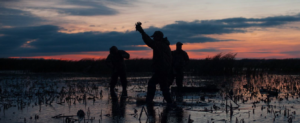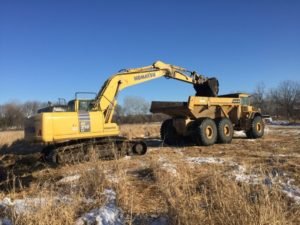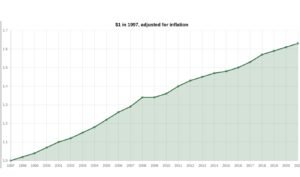 By Bruce Ross, Executive Director bruceross@wi.rr.com
By Bruce Ross, Executive Director bruceross@wi.rr.com
This article originally appeared in Wisconsin Waterfowl Association’s March, 2021 Newsletter edition
Maybe this article should be titled, “The things I read on Facebook”. Anybody who’s spent any time on Facebook would not be surprised by the incomplete and incorrect information that gets expressed as unchallengeable truth – and is frequently expressed with an antagonistic attitude. For sure, the medium does not lend itself to having a positive, respectful and thoughtful discussion. But it does expose where some people’s heads are at, and maybe, where more education is needed on an issue.
Our recent acknowledgement of the Governor’s inclusion of the stamp fee increase on our Facebook page is a prime example. The resulting comments on our post offered a great chance to do some fact-checking for the over 11,000 people who viewed or reacted to that post. We appreciate the opportunity to address the different perspectives that were voiced in that forum – then and below.
Here are the top 5 misconceptions or mischaracterizations that well-intentioned people floated in the post discussions, and which we tried to address.
-
I’d support this fee if it actually went into habitat, but the DNR probably uses it wherever they want… I’d bet this money does NOT go into habitat”
-
- It’s a good practice to question how the funds collected by the government are actually used. As it happens in this instance, funding IS required by law to be spent on habitat. Here’s the general explanation of how that money is required to be distributed:
- “The department shall expend 67% of the money received from fees for waterfowl hunting stamps for developing, managing, preserving, restoring and maintaining wetland habitat and for producing waterfowl and ecologically related species of wildlife.” The remaining 33%, shall be used for the “development of waterfowl propagation areas within Canada which will provide waterfowl that migrate through Wisconsin.”
- WWA sits on the Migratory Game Bird Advisory Committee that apportions the available dollars amongst the possible projects. It’s a grueling day-long review of all the applications, rank-ordering the applications to get the best return on the duck stamp dollar. Even the funds going to Canada are subject to a head-to-head competition to select the best and highest use of those dollars. I just finished attending that meeting, and we had 51 projects to consider, but were only able to fund half of them before running out of available funds.
- It’s a good practice to question how the funds collected by the government are actually used. As it happens in this instance, funding IS required by law to be spent on habitat. Here’s the general explanation of how that money is required to be distributed:
-
- It already costs $53 in licenses to hunt waterfowl, so now it’s gonna cost $58… This will chase people away from waterfowling, especially in the middle of a pandemic…
- This an understandable concern. We want to grow the community of waterfowlers, not shrink it. But as one commenter said: “It costs more for a half-day golfing trip than it does for a whole season’s worth of waterfowl hunting licenses and stamps.. Think about the price of almost anything in 1997 vs. today, or labor costs.”
- Or as another commenter said: “So they won’t pay $58, but they are willing to pay $53? They likely have already invested HUNDREDS of dollars in gear/equipment. I guess it doesn’t seem likely to me that $5 itself will deter someone”.
- Studies show that the perceived quality of a hunt (which is directly tied to hunter retention) is based on availability of location access and opportunity to harvest ducks. These are the principal factors that drive waterfowler satisfaction, not a minor increase in the cost of a license that will improve those factors.
- When one commenter said “It shouldn’t cost $60 to hunt ducks”, another responded: “it doesn’t – it costs thousands”. I think we can all relate.
- This an understandable concern. We want to grow the community of waterfowlers, not shrink it. But as one commenter said: “It costs more for a half-day golfing trip than it does for a whole season’s worth of waterfowl hunting licenses and stamps.. Think about the price of almost anything in 1997 vs. today, or labor costs.”
- The increase in this stamp is a result of inefficient and wasteful government practices... basically another tax from the government. Because instead of spending money more efficiently, they just take more $$ to fix problems… because I don’t feel the state is spending the money wisely, I don’t agree with an increase.”
-
The reality is that just about everything costs more than it did in 1997, the last time the duck stamp was adjusted for inflation. Labor, fuel, earth-moving contractors, land easements… just like your car and fuel that goes into it – and just about everything in your life.
- Our state waterfowling “infrastructure” is like our state’s road infrastructure: it requires maintenance if we want to keep it functioning. And that has a cost; while efficient use of funding IS important whenever you spend someone else’s money, the issue is there is not enough money, because it’s simply more expensive to do anything than it was 23 years ago.
- Stakeholders like WWA, representing the duck hunting community, are integral parts of the decision process for where duck stamp funding gets used. And all funding applicants must provide the information that allows the stakeholder group to determine where the monies will be best spent for the benefit of the state’s waterfowlers..
-
- The Governor should not be thanked by any sportsman’s group for putting this initiative in his budget because he cancelled hunter education & learn to hunts last year under his emergency mandate, and closed boat ramps too.
- There are very strong feelings about the proper governmental actions in this pandemic. But does it strike anyone else that this commenter was making a cats-and-dogs comparison? One issue is not connected to the other. We don’t have to agree on every politician’s previous actions, if we do agree that the additional funds generated by a duck stamp increase will benefit duck hunters across the state for generations. Or understand that a strong majority of waterfowlers support this increase. Or that in this period of split government, it may take help from both sides of the political aisle to do good for the ducks.
- And by the way, every single legislator we spoke with in the past several months – Republican or Democrat – told us that we should work hard to get it in the governor’s version of the budget to make it easier for it to be in the final, approved budget.
- This increase is only supported by “elite” waterfowlers, not the ‘everyday Joe’ sort of hunter.
 It’s not clear to me exactly who are the elite waterfowlers this post referred to; it certainly can’t be referring to my own non-elite level of shooting skill or duck-harvesting results – last year especially! I suspect he’s referring to a duck hunter’s disposable income. And of course, the commenter had no facts about how he came to the conclusion that the “everyday Joe” sort of hunter does not support this increase. Every hunter wants a quality hunt, and economic studies show we are willing to pay to get that quality hunt. More and better habitat, with more birds, will result from this $5 annual investment, factors that are most critical to a quality hunt.
It’s not clear to me exactly who are the elite waterfowlers this post referred to; it certainly can’t be referring to my own non-elite level of shooting skill or duck-harvesting results – last year especially! I suspect he’s referring to a duck hunter’s disposable income. And of course, the commenter had no facts about how he came to the conclusion that the “everyday Joe” sort of hunter does not support this increase. Every hunter wants a quality hunt, and economic studies show we are willing to pay to get that quality hunt. More and better habitat, with more birds, will result from this $5 annual investment, factors that are most critical to a quality hunt.- WWA’s membership demographic really bridges all sorts of hunters, from the new hunter who walks into a public river bank and throws in a dozen dekes, to the guy who paddles his yard-sale, dented Grumman canoe into a marsh each hunt, to the seasoned waterfowler with thousands of dollars invested in their gear and dogs. And they overwhelmingly support the duck stamp increase at more than 84% (with similar or higher numbers for DU and Delta). Considered collectively, these organizations represent the majority of the state’s 65,000 waterfowlers…. Guess I’m still not sure who’s elite and who’s not.
Taking a step back from all these details, the North American conservation model of preserving and protecting nature has resulted in the finest hunting and fishing conservation results in the world today. For generations it been based on the everyday hunter’s financial support of conservation (through habitat stamps, licenses, equipment taxes (like the 1937 Pittman-Robertson act and 1950 Dingell-Johnson act)), and through hunter-conservation organizations like WWA. I am personally proud to be a part of that legacy by putting my own money where my mouth is. This evolved approach to conservation in the United States may be unique in the world today, and gives us hunters tremendous standing against the drumbeat of anti-hunters.


